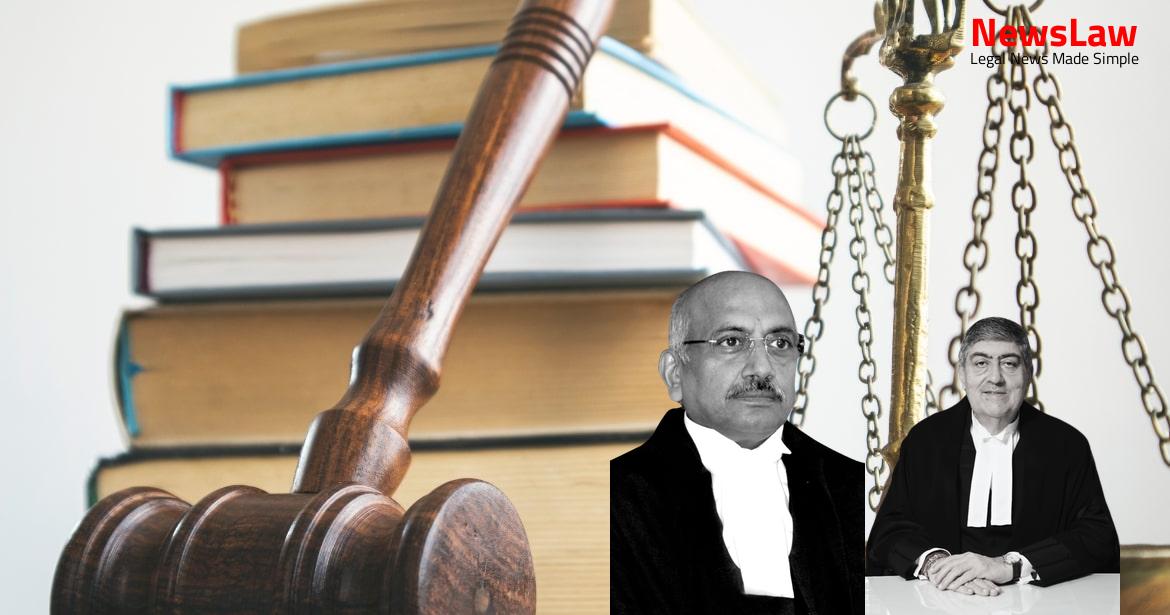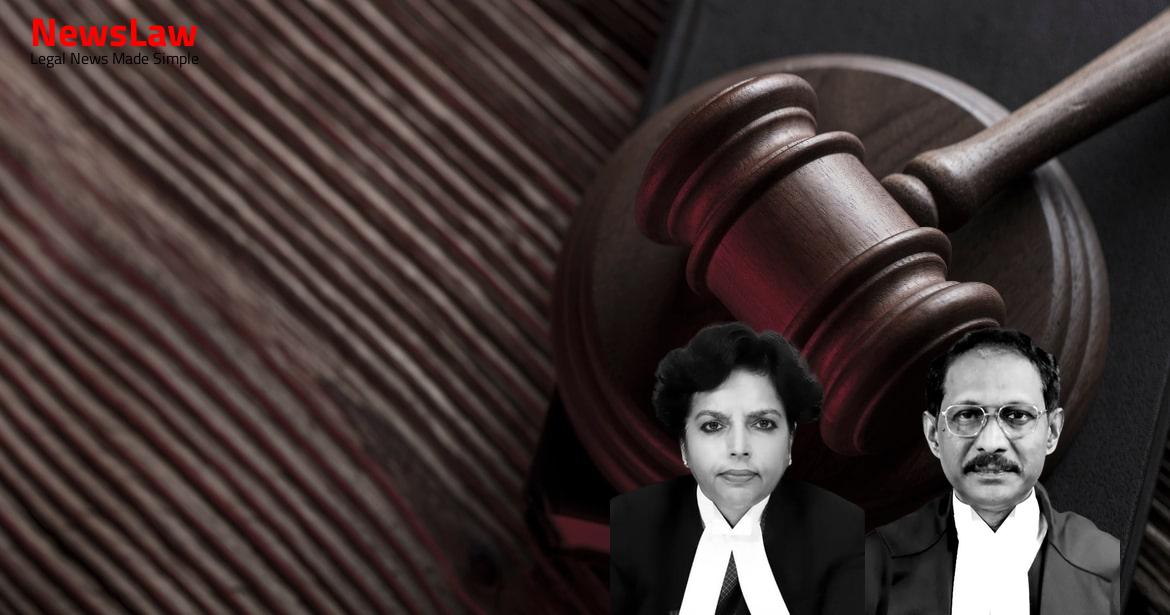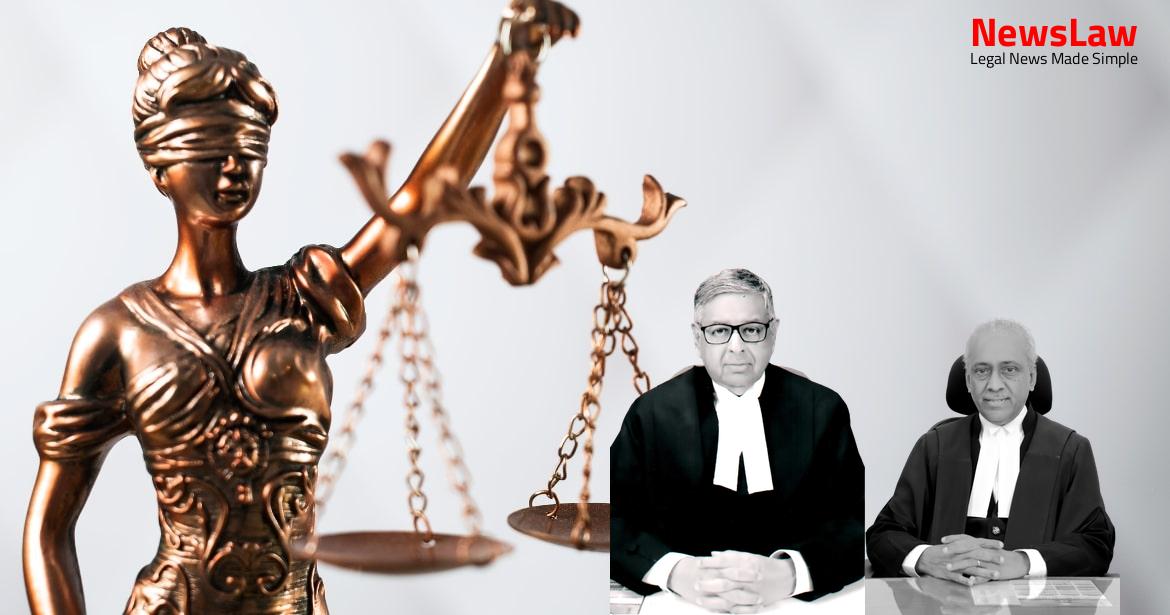In a groundbreaking ruling, the Supreme Court of India has made a pivotal decision regarding the extension of time limits in arbitration cases, impacting the parties involved and the overall legal landscape. This judgment will have far-reaching implications for arbitration proceedings, ensuring timeliness and efficiency in resolving disputes. Stay informed as we delve into the details of this transformative legal development.
Facts
- The High Court at Calcutta ruled that once the mandate of the arbitral tribunal is terminated, the court cannot extend the time under Section 29A(4).
- The termination of the mandate can occur after twelve months or with the consent of the parties after a further six-month extension.
- The power of the court to extend time is not available after the termination of the mandate.
- This decision clarifies the limits of the court’s authority in extending time for arbitration proceedings.
Also Read: The People vs. State of Madhya Pradesh: Landmark Judgement on Circumstantial Evidence
Analysis
- The court observed that when no limitation is prescribed by the legislature, it is inappropriate for the court to impose its own limitation period.
- The High Court of Delhi, Jammu and Kashmir and Ladakh, Bombay, Kerala, Madras, and Calcutta have all accepted the view that courts should not prescribe a specific period of limitation where the legislature has not done so.
- Section 29A of the A & C Act mandates a time limit for arbitral awards, with provisions for extensions if necessary.
- The High Courts of Calcutta and Patna have also supported the view that applications for extension of time under Section 29A can be made even after the initial time period has expired.
- However, some High Courts like Calcutta, Bombay, Kerala, Madras, and Jammu and Kashmir have held that applications for extension must be filed before the expiry of the arbitral tribunal’s mandate.
- An award must be made by the arbitral tribunal within twelve months as per Section 29A(1) of the Act.
- Parties can mutually extend this period by another six months.
- If the award is not made within the specified period, the mandate of the arbitrator(s) terminates unless the court extends it.
- The court can extend the period before or after the expiry as per Section 29A(4).
- The court can also reduce the fees of the arbitrator(s) by up to five percent for each month of delay caused by the arbitral tribunal.
- An application for extension under sub-section (5) should be disposed of promptly, aiming for a resolution within sixty days of notice to the opposite party.
- The arbitral tribunal can be substituted if necessary during this extended period, with the proceedings continuing from the existing stage.
- The new arbitrator(s) are deemed to have received the evidence and material already on record.
- In the event of a reconstitution of the arbitral tribunal, it is considered a continuation of the original tribunal.
- The court has the authority to impose actual or exemplary costs on any party involved.
- The word ‘terminate’ in Section 29A(4) is not to be interpreted strictly but in conjunction with surrounding words and expressions.
- A restrictive interpretation would lead to rigour, impediments, and complexities in the arbitration process.
- The power to extend the time period for making the award lies with the court and not with the arbitral tribunal.
- An extension of time for making an award can be granted by the court only for ‘sufficient cause’ and on terms and conditions imposed by the court.
- The Court must decide on an application for extension of the arbitral tribunal’s period even if an award has been pronounced, invoking the relevant sections of the A & C Act when required.
- The AJudicial discretion of the Court acts as a deterrent against abuse of legal processes by parties.
- The legislative intent behind using the word ‘terminate’ in Section 29A(4) is to affirm party autonomy and timeliness in the arbitration process.
- The court can extend the time for making an award before or after the mandated period based on an application filed by a party.
- The termination of the arbitral mandate is conditional upon non-filing of an extension application and is not absolute or final.
- The intention behind the Arbitration and Conciliation (Amendment) Act, 2015 was to expedite arbitration proceedings and reduce litigation costs.
- The power to extend the time for making an award under Section 29A(5) should not be granted without sufficient cause and need.
- Applications for extension of time for passing an arbitral award under Section 29A(4) read with Section 29A(5) can be submitted even after the original time limit has expired.
- Delays in the arbitral process can occur without court intervention.
- The provision for early disposal of extension applications can compensate for the absence of a prescribed time limit.
- Interpreting the law should prioritize practical and pragmatic results over unreasonable outcomes.
- The removal of the time limit for passing an arbitral award has negative consequences.
Also Read: Modification of Order: Enforcement Directorate v. Amit Walia
Decision
- The appeals are directed to be listed in the week commencing 30.09.2024 for final hearing and disposal.
- Implementation of the recommendation from the 76th Report of the Law Commission with modifications requiring an award to be passed within one year of arbitrators entering the reference.
- Initial period for passing an award is one year, with the possibility of extension by mutual consent.
- Parties can extend the time up to a maximum of another one year with consent.
- Further extension beyond the stated periods must be granted by the Court, with applications for extension to be disposed of within one month.
- Court may impose costs and indicate future procedures for the tribunal when granting extensions.
- Adjudication of extension applications will be guided by the principle of sufficient cause and observations in paragraph 15 of the judgment.
- Pending extension applications, arbitration proceedings are allowed to continue.
Also Read: Case Summary: Acquittal in FIR Nos. 540/2011 and 582/2011
Case Title: ROHAN BUILDERS (INDIA) PRIVATE LIMITED Vs. BERGER PAINTS INDIA LIMITED (2024 INSC 686)
Case Number: C.A. No.-010620-010620 – 2024



